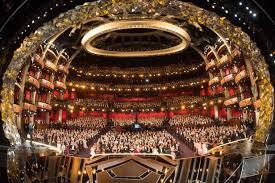How do this year’s Oscars fare in terms of diversity?

“It’s an honor just to be nominated” is one of the more clichéd statements frequently made by Oscar nominees, but one that is undoubtedly a genuine statement for many. After all, nominations are a legitimate indication of who is worthy of not only cultural acknowledgment but a financial investment. This is why it’s crucial to pay attention not only to who is being recognized at the Academy Awards but also to who isn’t.
The Academy’s dismal record on nominating nonwhite talent was most famously criticized in 2015 when activist April Reign launched the #OscarsSoWhite campaign. That year all 20 possible acting nominations went to white performers. It’s probable that this lack of diversity in nominations reflected the Academy’s own cultural homogeneity: As of 2018, the Academy’s members are 31 percent female and 16 percent people of color, according to DigitalSpy.
This year, however, the Academy actually seems to be making progress in terms of diversity: 156 men and 51 women were nominated this year in nonacting categories, and more people of color were nominated in each category than in previous years. The Best Picture category was particularly more diverse than normal: Five of the eight nominated films — Blackkklansman, Black Panther, Bohemian Rhapsody, Roma, and Green Book — feature leads who are people of color. Another film nominated, The Favourite, has an extremely white cast, but was helmed by and tells the stories of women.
The directing category is also more racially diverse than it has been in the past: Two of the five nominated directors, Alfonso Cuarón and Spike Lee, are not white. Of course, all the nominated directors are men. But Cuarón’s film Roma notably brought two Latin American actresses to prominence: Yalitza Aparicio and Marina de Tavira were nominated for Best Actress and Best Supporting Actress respectively for their performances in Cuarón’s film. Lee’s nomination is also significant in that his nomination for Blackkklansman is his first after arguably having been snubbed by the Academy for the better part of three decades. Lee also earned a nomination for Best Adapted Screenplay, as did African American writer/director Barry Jenkins, who wrote If Beale Street Could Talk.
Interestingly, while only five of the 20 actors and actresses nominated across the four major acting categories this year are people of color, the actors favorited to win three out of these four categories are people of color. Mahershala Ali and Regina King are likely to win in both supporting categories for their performances in Green Book and If Beale Street Could Talk respectively, and Rami Malek is the betting favorite to win Best Actor for his starring role in Bohemian Rhapsody. While the winners’ speeches may very well come from actors decidedly more diverse than winners in the past, it’s still significant that they were the exceptions among the strikingly white field of nominations.
One of the most significant acts of progress the Academy may make this year, however, could be in the animated category. Spiderman: Into the Spiderverse — a superhero movie in which a black kid from Brooklyn takes over one of the most iconic mantels in pop culture, held for decades by a white character — is favored to win the Oscar for Best Animated Film. The film’s message of self-worth, delivered by a character with a marginalized identity in a genre that is especially white, would be a win not only for the movie itself, but for diverse representation in general.
While the aforementioned strides are significant, there is still plenty of room for the industry to expand its inclusion. For example, it was a landmark year for Asian representation in Hollywood — from Netflix’s pop culture darling To All the Boys I’ve Loved Before, to the critical success of the movie Searching, and the box office behemoth that was Crazy Rich Asians — yet none of these efforts received any kind of discernible recognition throughout this awards season. As important as it is to celebrate awards shows’ recognition of diversity, therefore, it’s crucial to remember that the industry as a whole remains incredibly blind to progress and that those giving awards seem particularly a step behind the culture and the box office — and moviegoers must constantly push them to do better.
More articles by Category: Arts and culture
More articles by Tag: African American, Black, Equality, Sexism, Racism, Film


























